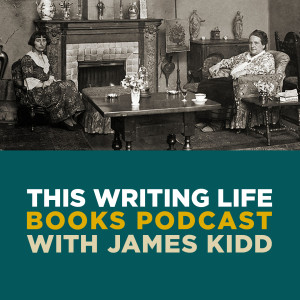
Part two of our conversation with Simon Barnes, the award-winning sportswriter, revered birdlover and Chair of 2020's Keats-Shelley Prizes.
Our annual theme is 'Songbirds', to mark the composition 200 years ago of PB Shelley’s To a Skylark and the publication in book form of John Keats’ Ode to a Nightingale, which made Simon the perfect choice as Chair.
In which Simon discusses the repertory singers that are skylarks and nightingales, how and why they sing (and does this make them sexy), whether Keats' nightingale could sing and fly - and does that spoil the poem?
After this, we move onto the extinction threats looming over both birds - not to mention the planet as a whole - and whether poetry can help sharpen our awareness of humankind's mortality?
Simon Barnes is unique in the world of literature. How many revered sports writers are also revered nature writers too? Off the top of my head I can think of one: Simon Barnes himself.
For many years the chief sports of the Times, he covered seven Olympics, five World Cups, a Superbowl and the World Chess Championship. His profiles included everyone from David Beckham to Red Rum, his publications range from novels about Hong Kong to a biography about England off-spinner Phil Edmunds.
What elevated Barnes above his peers was prose that could pithily encapsulate the drama simmering underneath the surface action: ‘With Sampras the beauty was subtle, the tactics and execution obvious. With Federer, it was exactly the other way around,’ as he wrote in his 2018 career-spanning retrospective, Epic.
As this reading from his excellent The Meaning of Birds, Barnes has brought similarly acute sensitivity to his accounts of the natural work - and of birds and birdsong above all.
This is one reason I approached Simon (in my other work for the Keats-Shelley Memorial Association) to be the Chair of 2020's Keats-Shelley and Young Romantics Prizes - for poetry and essays. Our annual theme is 'Songbirds', to mark the composition 200 years ago of PB Shelley’s To a Skylark and the publication in book form of John Keats’ Ode to a Nightingale.
I recently met Simon in London to talk to him about his love of nature, poetry, sport and writing - not to mention how this feeds into Romanticism, Keats and Shelley.
Part one of that conversation is posted on this very website.
Read more about 2020’s Keats-Shelley Prizes here.
For 2020’s Keats-Shelley Prize, click here.
For information on 2020’s Young Romantics Prize click here.
The music on the podcast is Androids Always Escape by Chris Zabriskie.
No comments yet. Be the first to say something!